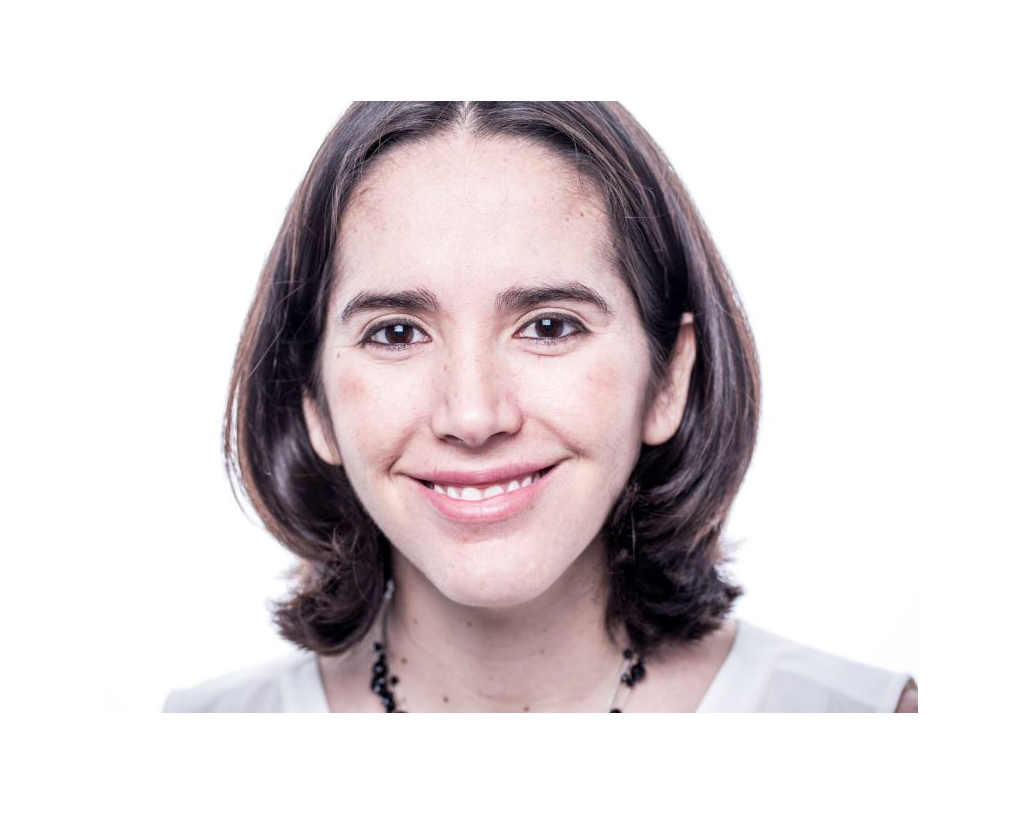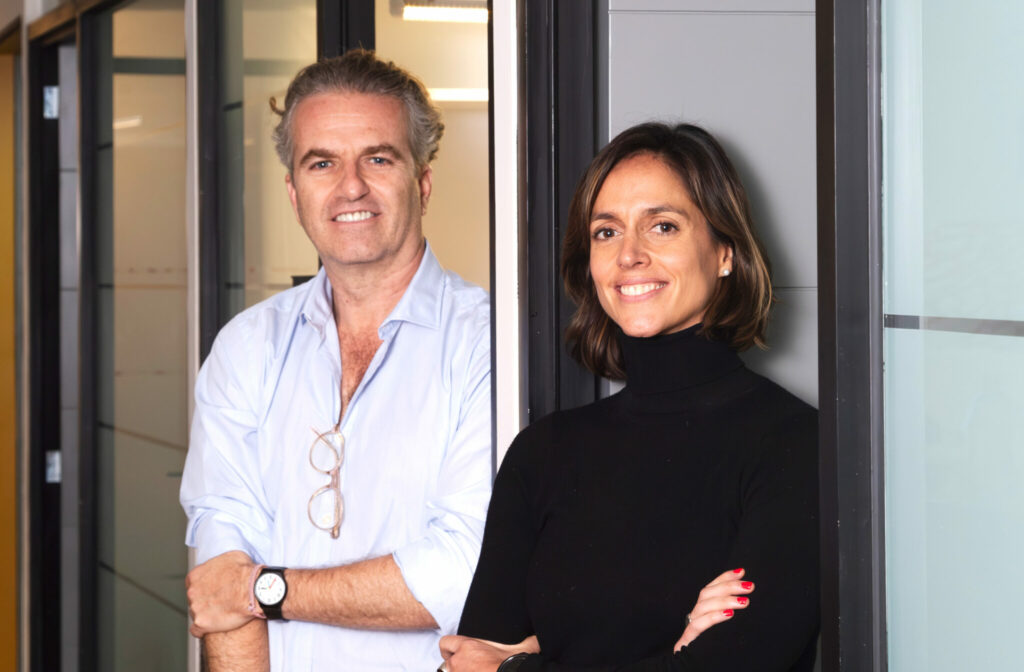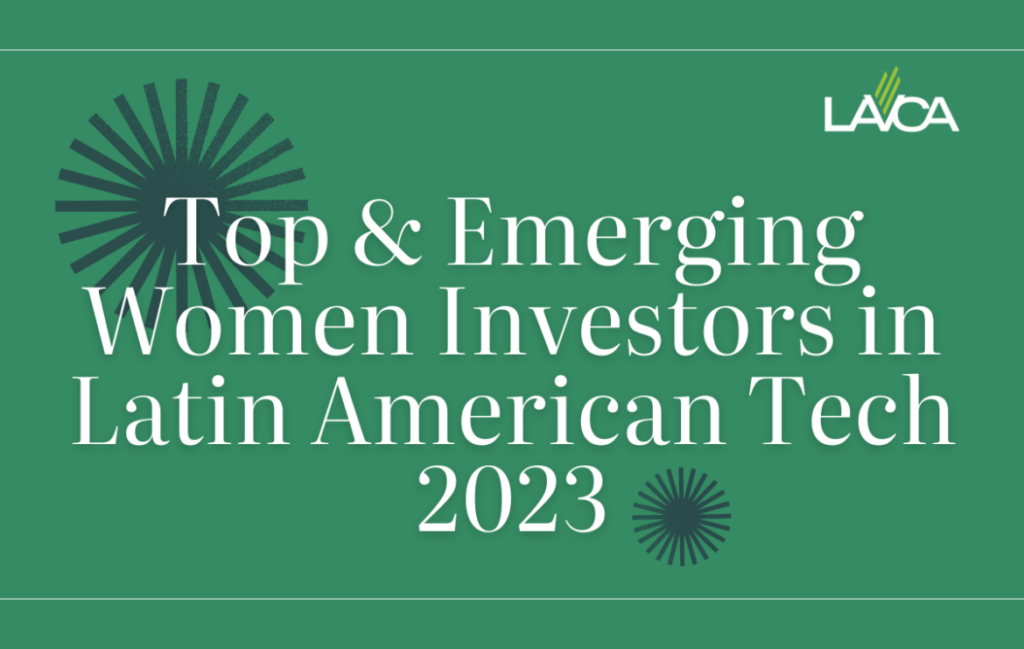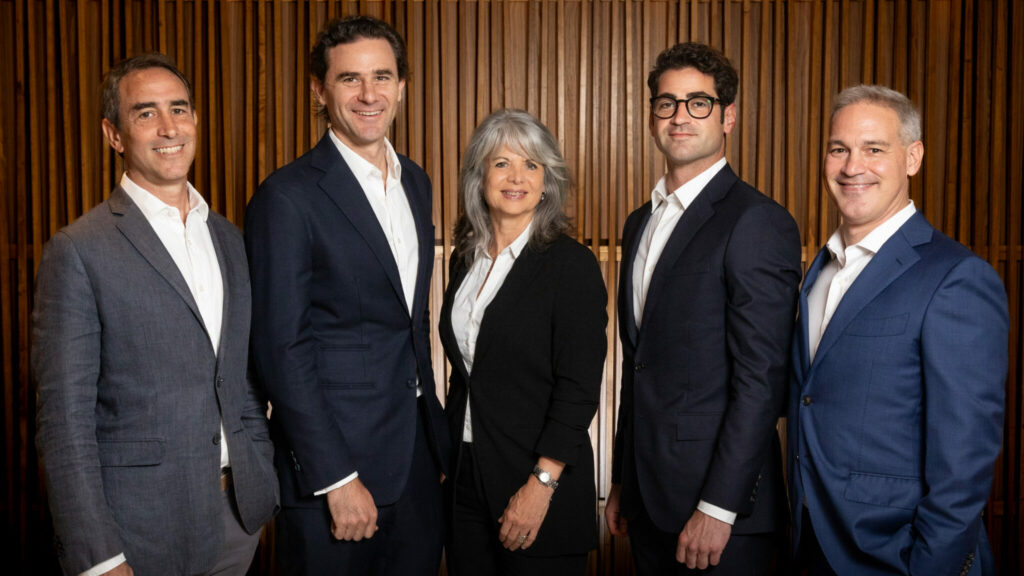Entrepreneur Profiles, Gender Diversity
Entrepreneur Spotlight: Interview with Laura Mendoza, Co-Founder & Chief Product Officer, Unima
3 December 2019

Company: Unima
Investors: Vulcano, Fondo Alerce, Genesis Ventures, Avalancha Ventures, Ringold Ventures, Y Combinator, Social Capital, Investo, angel investors
Interview with: Laura Mendoza, Co-Founder & Chief Product Officer
Unima is a Mexico-based healthtech startup developing fast and low-cost diagnostics and infectious disease surveillance for limited resource settings. Co-Founder & CPO Laura Mendoza won the 2018 WeXchange pitch competition organized by Angel Ventures in Lima, Peru; she also spoke at LAVCA’s 2019 Venture Investors Annual Meeting on a biotech panel with founders of OneSkin and Miroculus.
LAVCA: Why did you start Unima? Who are your co-founders?
Laura Mendoza: We started Unima because we want to see a world where quality health services are accessible to all regardless of where they are or their ability to pay. We are addressing this through the development of fast and low-cost diagnostics, to serve three billion people living in emerging and developing countries.
My co-founders are Jose Luis Nuño, Alejandro Nuño and Rodrigo Nuño. This is our second startup and we have been working together as a team for almost 15 years. Together we bring over 50 years working in the healthcare industry and we have worked in developing the skills that will allow us to scale a company serving the healthcare sector by using tools developed with biotechnology.
I studied chemical engineering in college (1995-1999), and have three master degrees in Bioprocesses (05-07), Plant Genetics (2008-2011) and Marketing (2012-2015). I also worked for some years in Boehringer Ingelheim in Guadalajara, one of the most important pharmaceutical companies in the world, in the veterinary market where we served the cattle, swine and poultry industries.
Along with my cofounder José Luis, who I met while working at Boehringer Ingelheim, we saw some opportunities in the poultry industry, so we left our job and started our first startup with Alejandro and Rodrigo (José Luis’ brothers). Our product, Custovac, a vaccine stabilizer we developed, was sold in 14 countries in the world, including Japan and Russia.
How does Unima is aiming to disrupt the biotech/healthtech sector? What problem(s) are you solving for?
We are taking diagnosis out of the lab and into the point of care even in the most remote areas of the world. We work to help Doctors, Nurses and Community Healthcare Workers who are the first point of contact of a patient with healthcare. Our goal is to increase access to a timely diagnostic that for people in emerging and developing countries that because of costs or service centralization have limited access to these services.
How does Unima’s infectious disease detection technology compare to other technologies globally?
Current diagnostic technologies are very accurate and can diagnose almost any disease known, but they require specialized labs and equipment that are very scarce in emerging and developing countries.
These technologies could take days or even weeks to provide a result and can cost above US$10 per test. Because of this, it is close to impossible to provide universal access to diagnostic for everyone. Our technology allows anyone, even people with very little technical training, to diagnose a disease directly at the point of care, in under 15 minutes and at a fraction of the cost.
How did you explain the market opportunity in Mexico to your investors? Are you focused on the Mexico opportunity, or do you also see the company expanding into other markets in the next few years?
The market opportunity was the lack of access to fast, low-cost and easy to use actionable diagnostics. This opportunity is not exclusive to Mexico, but a need in all emerging and developing countries, from key markets like China, India or Brazil, to developing markets in Africa, Latin America and South East Asia.
Mexico has a great pool of talent in Life Sciences and Technology, lower operation costs and the key characteristics of our target markets, and because of this, Mexico is a great springboard for global growth. Now, in this new stage, we have also incorporated new operations in Santiago and Madrid, in order to access new talent opportunities and leverage our strategies for Latin America, Africa and the Middle East.
What are the benefits and challenges of running a startup out of Mexico?
There are key benefits in Mexico as the access to a wide pool of talent, lower operation costs, it is easier to work with healthcare organizations and to run clinical research. Competition for talent is also less critical than in other countries like the United States. Also there is a great need for our technology in the healthcare industry, so we can pilot new applications successfully and then replicate for other markets.
The biggest challenge we have is the lack of access to private capital for health technology and life sciences in Mexico, and in general in Latin America.
What financing have you received thus far and from whom?
We have received US$2.6m in funding: US$600k from grants and non-dilutive funds, and US$2m in equity, from LATAM investors based in Chile, Mexico and Paraguay including Vulcano, Fondo Alerce, Genesis Ventures, Avalancha Ventures and Ringold Ventures, as well a globally based investors including YCombinator, Social Capital, Investo and angel investors.
Female investors include Vivianne Bernardes Cibils, from Paraguay, cofounder and CEO at Cibersons and Investor at Ringold Ventures Corp., and Elizabeth Iorns, from the United States, co-founder and CEO of Science Exchange.
To date, we have used the funds for the further development and improvement of our first test developed for Tuberculosis, the development of new tests that are still in earlier stages, get new commercial contracts at the international level, execute clinical trials and pre-commercial validations and start regulatory processes.
How have programs like Google Launchpad and YC been important to your growth? How did you get access to these programs?
Both programs are very competitive and we got selected because
we are working on a huge problem for more than half of the world’s population, and this represents a large market opportunity.
Both of those programs have been an important part in the growth of our startup. Y Combinator has been a big door for us to access Silicon Valley ecosystem and how to navigate it efficiently.
For fundraising, we leveraged the YC investor network, as well as the Endeavor investor network, contacts from our current investors, and we also had a presence at LAVCA’s 2019 annual venture investors meeting in New York City.
Unima won the WeXchange pitch competition in 2018. How did this help advance the business?
WeXchange has given us so much in terms of access to investors and access to new markets and customers:
- Access to investors: About 2/5 of the equity funding we have received has come from investors we met as a result of being part of WeXchange. All of our Latin America investors (except for our Mexican investors) came as a result of participating in WeXChange.
- Access to new markets and customers: We have been able to meet distributors and even Ministries of Health through our network built at WeXChange.
Having participated in WeXchange 2018, and still being a part of the WeXchange network, continues to impact our company. We are still meeting potential new investors.
At LAVCA’s annual meeting in NY, there was discussion around how sometimes biotech entrepreneurs from the region need to go abroad for a validating event, such as participation in an acceleration program, for the local market to understand/value what you are building. Can you comment on this?
Yes. Our case looks very much like other companies that have raised money before, and have gone to raise by now their Series A, B, C and beyond. Before going through Y Combinator, and receiving money from the Y Combinator investor network, we weren’t able to get funding from Mexican VCs. We were perceived as a very risky company because the technology was based in biotech, and most investors in Mexico don’t have expertise in Life Sciences. Until we were able to raise money in the United States, the perception of us shifted, and we were able to raise some money from Latin American investors.
That being said, I now see that most LATAM funds are not prepared to invest in deep tech and they shouldn’t, really, until they have gone through an internal development process inside the VC funds to create a talented team of people that understands biotechnology and the economics behind biotechnology startups.
It is our responsibility as part of an ecosystem to create a sustainable context of investment for all, so that the investors’ funders feel more comfortable investing in biotechnology companies in the near future and beyond. For me, a quick way to overcome this barrier would be to have VC funds that don’t have a biotechnology expertise partner with funds in developed markets that do. This will help shorten the learning curve of investing in a Life Science based company.
What specific challenges are you facing as a woman entrepreneur in Latin America?
As a woman entrepreneur in Latin America, my biggest challenge is working in a context where leadership is expected to be delivered in a traditional male fashion. Earning a place in the mind of my stakeholders requires the design and development of a strategy in and on itself, consistency and follow up (not losing the focus, because for a woman to lose her focus costs thrice as much).
Things get even trickier when mixed by my choice of also being a mother. Traditional expectations for leadership almost always take the form of a male leadership, which can be delivered by male founders who behave in a traditional way (completely free from house chores, child bearing and bringing up and educating children, even when they choose to be fathers). I have needed to reinvent myself and my work system constantly to fit the demands of my two roles also leveraging a support system that helps me. If I have been successful, it’s thanks to this very LatAm style support system. If I’ve failed, it’s entirely and solely my fault.
Do you have any advice for women creating and growing businesses in Latin America?
I believe women entrepreneurs in LatAm need to hack and disrupt traditional leadership delivery expectations and even need to design a roadmap on how they are going to achieve this in the long term tailored to their needs. Especially for women who will choose, or have chosen motherhood, it is essential to think in terms of positive impact and sustainability through strategic thinking, focus and constant team building.
For women, it is not practical to compete against male counterparts in terms of outworking them, since the biological demands on women (in my opinion) are different. They may be able to work as much as men for a certain number of years, but not in the long term in a sustainable way*. If a woman wants to compete with the same tools as males do in LatAm (overwork, freedom from children -natural or artificial-), she risks unsustainability, burnout and unfulfillment.
But if women are super smart about how to reach for the Achile’s heel, they will be able to leverage their strengths and their insights, in a way that only a woman in a man’s world can.
This translates to a lot of value for sustainability and long term impact for the group as a whole.
You may be interested in...
-

Is AI a Thing in Latin America? In Conversation with Hi Ventures
LAVCA sits down with Hi Venture to discuss their evolving thesis and vision for...
-

Top & Emerging Women Investors in Latin American Tech 2023
View LAVCA’s list of Top Women Investing In Latin American Tech. Women in venture...
-

The Future of B2B Startup Investing in LatAm: In Conversation with NXTP
NXTP Ventures recently reached a USD98m final close for NXTP Fund III, its third...
-

A 20-Year Journey: An Interview with Technisys CEO Miguel Santos
Company: Technisys Investors: KASZEK, Dalus Capital, Riverwood Capital Interview...